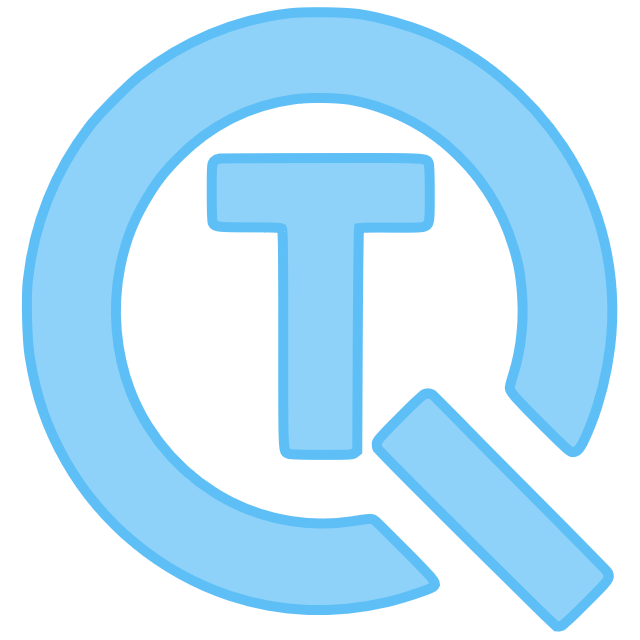The tq program lets you query TOML configuration files with a sequence of
intuitive filters. It works as a regular Unix filter program reading input data
from the standard input and producing results to the standard output. Consult the
package documentation or check the
Usage section to see how you can use tq.
Install the program and use tq on the command-line to filter TOML files on
the terminal.
go install github.com/mdm-code/tq/cmd/tq@latestHere is how you can get the whole Go package downloaded to fiddle with, but
it exposes only the public interfaces for tq and the TOML adapter so that
the latter can be swapped out.
go get github.com/mdm-code/tqEnter tq -h to get usage information and the list of options that can be used
with the command. Here is table with the supported filter expressions and some
examples to get you going on how to use tq in your workflow.
Some effort has been made to make queries less clunky to type out on the command line and the syntax for queries more aligned with the TOML syntax and semantics. It's been decided to drop the requirement for square brackets for selectors and quotation marks for bare strings. Queries can now span across multiple lines so that they are still legible as their complexity increases. Longer queries run in a shell script might benefit for it. As for quoted strings, both inverted commas and quotes can be used. A note of caution though that these should be used such that they do not interfere with shell quoting.
Filter |
Expression |
|---|---|
| identity | . |
| key | ["string"] or "quoted string" or bare-string |
| index | [0] |
| iterator | [] |
| span | [:] |
Commonly found characters are mapped onto often used escaped sequences. These can be used in quoted strings mostly the same way one would use them in a TOML file though the specification for the TOML language advises against the use of funky keys unless there is a good reason to use them. Tq does not support Unicode escape sequences in quoted strings as of today, but there are plans to add it in the future.
\b - backspace
\t - tab
\n - linefeed
\f - form feed
\r - carriage return
\" - double quote
\' - single quote
\\ - backslashHere is a dummy configuration file in TOML found on the web for Gitlab
connected to a Kubernetes. The file attempts to configure some Gitlab runners.
The file is (1) queried with the key runners to access the table that is then
(2) converted to an iterator with []. Then (3) the query goes for
kubernetes, volumes, and host_path in this order to (4) turn the last one
to an iterator with [], and then (5) query each element of the iterator for
"host path". Mind the quoted string with the space.
tq -q '
.runners[]
.kubernetes
.volumes
.host_path[]
."host path"
' << EOF
[session_server]
session_timeout = 1800
[[runners]]
name = ""
url = ""
token = ""
executor = "kubernetes"
cache_dir = "/tmp/gitlab/cache"
[runners.kubernetes]
host = ""
bearer_token_overwrite_allowed = false
image = ""
namespace = ""
namespace_overwrite_allowed = ""
privileged = false
memory_limit = "1Gi"
service_account_overwrite_allowed = ""
pod_annotations_overwrite_allowed = ""
[runners.kubernetes.node_selector]
gitlab = "true"
[runners.kubernetes.volumes]
[[runners.kubernetes.volumes.host_path]]
name = "gitlab-cache"
mount_path = "/tmp/gitlab/cache"
"host path" = "/home/core/data/gitlab-runner/data"
[[runners]]
name = "runner-gitlab-runner-xxx-xxx"
url = "https://gitlab.com/"
token = "<my-token>"
executor = "kubernetes"
[runners.cache]
[runners.cache.s3]
[runners.cache.gcs]
[runners.kubernetes]
host = ""
bearer_token_overwrite_allowed = false
image = "ubuntu:16.04"
namespace = "gitlab-managed-apps"
namespace_overwrite_allowed = ""
privileged = true
service_account_overwrite_allowed = ""
pod_annotations_overwrite_allowed = ""
[runners.kubernetes.volumes]
EOF
Output:
'/home/core/data/gitlab-runner/data'In the example below, the TOML input file is (1) queried with the key
servers, then (2) the retrieved table is converted to an iterator of objects
with [], and then (3) the IP address is recovered from each of the objects
with the quoted key "ip".
tq -q '.servers[]."ip"' <<EOF
[servers]
[servers.prod]
ip = "10.0.0.1"
role = "backend"
[servers.staging]
ip = "10.0.0.2"
role = "backend"
EOF
Output:
'10.0.0.1'
'10.0.0.2'This example uses the older syntax and queries the TOML input for the for the all ports aside from the first one assigned to the first database record on the list.
tq -q '.["databases"][0]["ports"][1:][]' <<EOF
databases = [ {enabled = true, ports = [ 5432, 5433, 5434 ]} ]
EOF
Output:
5433
5434If you don't feel like installing tq with go install, you can test tq out
running inside of a container with this command:
docker run -i ghcr.io/mdm-code/tq:latest tq -q ".dependencies.ignore" <<EOF
[dependencies]
anyhow = "1.0.75"
bstr = "1.7.0"
grep = { version = "0.3.1", path = "crates/grep" }
ignore = { version = "0.4.22", path = "crates/ignore" }
lexopt = "0.3.0"
log = "0.4.5"
serde_json = "1.0.23"
termcolor = "1.1.0"
textwrap = { version = "0.16.0", default-features = false }
EOFGo through the Makefile to get an idea of the formatting, testing and linting that can be used locally for development purposes.
Copyright (c) 2024 Michał Adamczyk.
This project is licensed under the MIT license. See LICENSE for more details.


